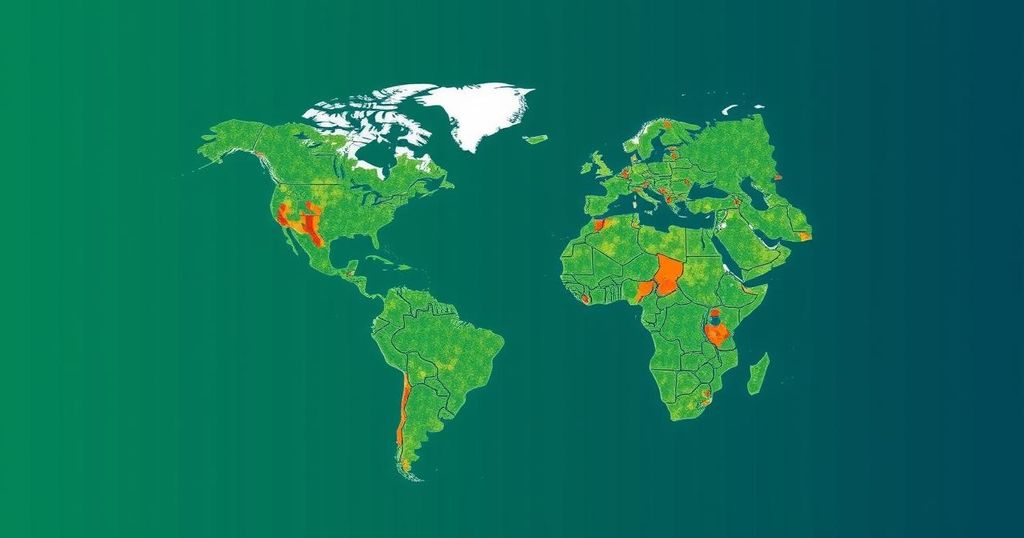During COP29 in Baku, countries agreed on a $300 billion annual climate finance target for developing nations, deemed insufficient and lacking accountability measures by experts. The deal aims for a broader $1.3 trillion funding goal by 2035, but faces criticism from vulnerable nations and advocates who highlight the need for actual commitments and recognition of historical responsibilities from developed countries.
At the COP29 summit held in Baku, Azerbaijan, nations reached a consensus on a global climate financing target of $300 billion per year, deemed by many developing nations as grossly inadequate for addressing the pressing consequences of climate change. Experts assert that the absence of a binding accountability framework undermines the effectiveness of this commitment, particularly for wealthier nations. The agreement introduces mechanisms for climate financing and emphasizes the need for developed nations to contribute a minimum of $300 billion annually post-2025, with a broader target of $1.3 trillion by 2035 to assist developing countries. Criticism arose from leaders of smaller nations, highlighting the insufficient nature of the deal in the face of dire climate impacts that threaten their livelihoods. The discussions revealed significant disparities between the interests of developed and developing nations, eventually leading to tensions and concerns regarding the commitment levels from wealthier countries.
Chinese representatives stressed the importance of equity in climate responsibilities, as developed nations were criticized for neglecting their historical obligations. Some experts pointed out that richer nations often perceive climate funding as charity rather than a legal obligation, contributing to a growing sentiment of betrayal among developing nations. Calls for consistency and accountability were echoed by numerous stakeholders after the negotiations, underlining the need for developed countries to take a more active role in combating climate change whilst honoring their commitments.
The climate crisis continues to present formidable challenges, exacerbating existing inequalities and necessitating cooperative efforts for sustainable solutions. Effective implementation of climate agreements hinges on honesty and shared responsibility, vital for the future well-being of all nations, particularly those most vulnerable to environmental changes.
The COP29 summit in Baku aimed to address the pressing need for financial support for developing nations grappling with the impacts of climate change. The commitment by developed countries to provide $300 billion annually reflects growing recognition of this necessity; however, critics argue that the amount is insufficient to meet the escalating challenges posed by climate change. Furthermore, the lack of enforceable accountability mechanisms raises concerns about the fulfillment of these financial pledges, unveiling a significant gap in the multilateral climate support framework. The discourse surrounding climate finance is especially crucial given the historical responsibilities of richer nations in contributing to global greenhouse gas emissions, establishing a moral imperative to respond adequately to the climate emergency.
In conclusion, the recent $300 billion climate finance agreement at COP29 has faced significant scrutiny for being inadequate in meeting the urgent needs of developing countries facing the ravages of climate change. Experts have highlighted the absence of a mandatory accountability mechanism as a major flaw that could lead to non-compliance by wealthier nations. As the dialogue surrounding climate financing advances, it is imperative that developed countries recognize their historical responsibilities and work collaboratively towards effective and sustainable solutions that adhere to principles of equity and shared commitment.
Original Source: www.globaltimes.cn






